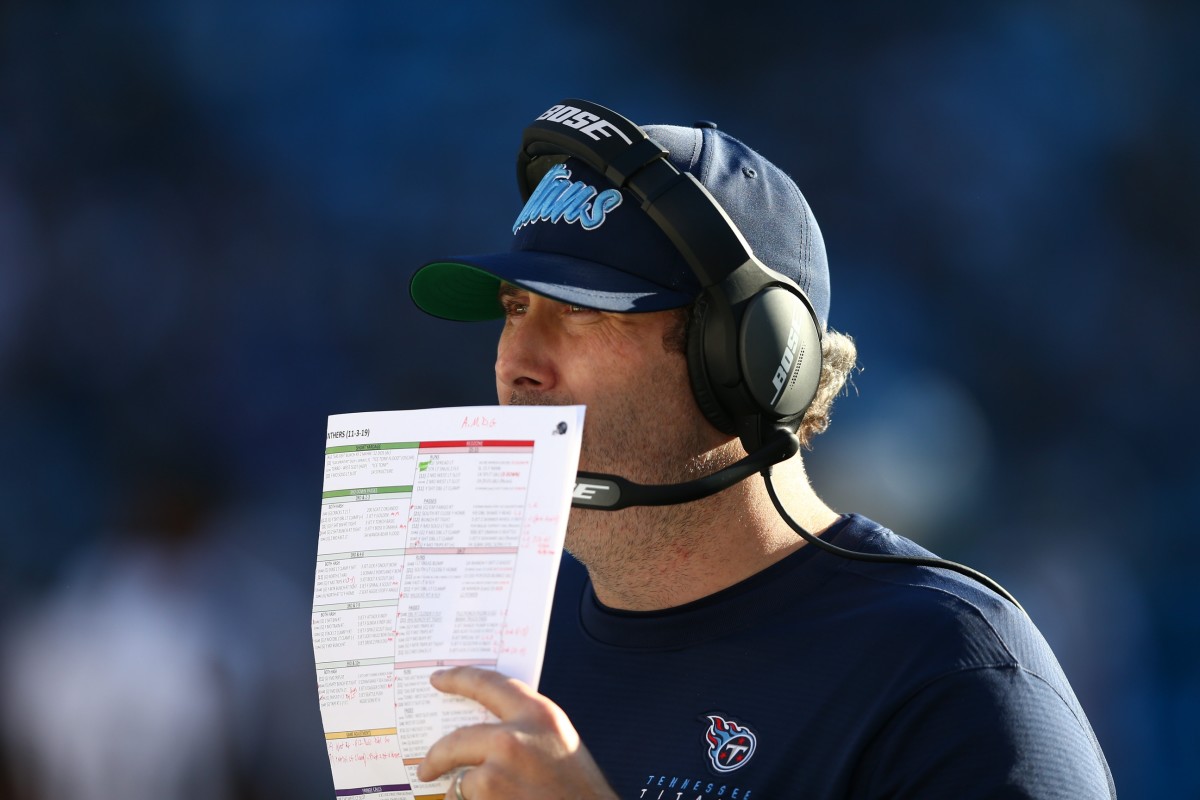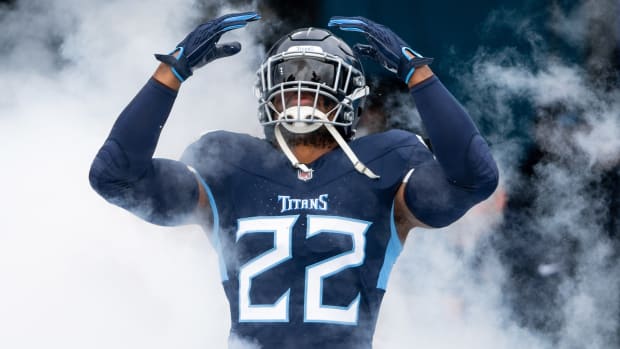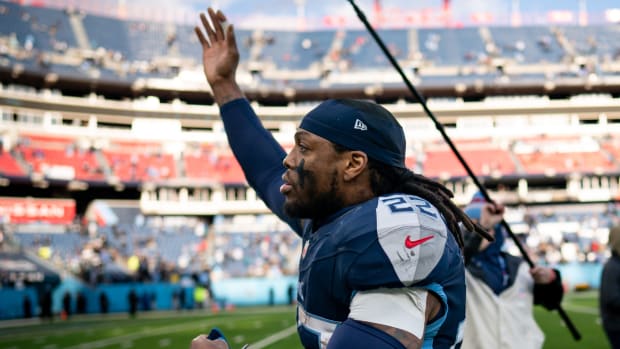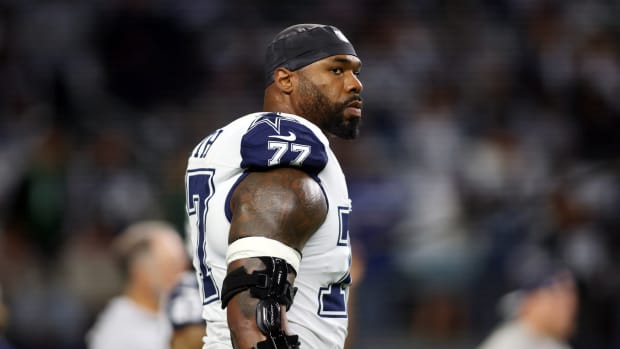Smith's 'Best Call' Helps Titans Finish Off Colts

It was the 700 play Arthur Smith has called this season, not counting ones negated by penalty or some other development, and in the mind of Tennessee Titans coach Mike Vrabel, it was unlike any of the previous 699.
Ryan Tannehill’s 40-yard touchdown pass to Kalif Raymond with 3:02 to play Sunday was a mix of design, execution and bravado that has not always been evident in Smith’s first season as offensive coordinator. Yet on third-and-6 and his team ahead by seven, Smith took a big swing. The result was a play that extended the Titans’ lead to 14 points, effectively put the game out of reach and elevated the first-year play-caller in the eyes of those who work with him.
“I thought that was Arthur’s best call of the year,” Vrabel said. “I thought it was a great call. I thought [it was] well-executed, aggressive. We talked about going for it – go win the game. He did.”
It turned out to be the final score in Tennessee’s 31-17 victory, but it could represent start of a new phase in Smith’s career as a play-caller. His willingness to take similar gambles in the coming weeks and years likely will be enhanced by the payoff this time.
And it was a gamble, based on numerous factors.
Start with the situation. Indianapolis had two timeouts remaining, which meant an incomplete pass would have stopped the clock without them having to use one. Even in Lucas Oil Stadium, with its closed roof, the Titans likely would have been out of field goal range, forced to punt and then try to hang on to a one-touchdown lead with plenty of time on the clock.
Then there was the defense. Pass protection had been an issue throughout the contest as the Colts recorded six sacks against Tannehill, one of which resulted in a first-quarter fumble, and consistently pressured him with a variety of blitzes. The play-action, half-roll and deep throw of this particular call required a little extra time to throw.
Factor in the personnel. Raymond is a journeyman most often used as a returner, who had just four receptions this season and five for his career – none of which ended with him in the end zone. With several players kept in to block, there was not a bevy of other options for Tannehill.
Recent history was no more reassuring. In particular, decisions by Vrabel early in the season to try and put away opponents at key moments did not work well and led to plenty of second-guessing. Aggressive decisions against Atlanta, the L.A. Chargers and Tampa Bay, for example, all led to some late – many would say unnecessary – drama.
On top of all of that, it was not something the offense had necessarily perfected throughout the offseason, training camp, preseason and the first 12 weeks of the regular season. Tannehill called it a “new play.”
So, there were reasons not to do it. Plenty of them.
Smith did it anyway.
“I’m just so happy to have him as an (offensive coordinator) and to be able to make that play for him,” Raymond said. “… In order for a play like that to work, you’ve got to have people blocking for me, man. If you saw the ball that (Tannehill) put, that was on the money, man. So, it’s a product of everybody kind of coming together and making a play.”
And one guy daring enough to dial it up at that time.
“Great call by Art,” Tannehill said. “He went with his gut, kind of showed how big of stones he had there. I was able to make the play and Kalif made a great catch on the other end. … We were able to make a huge play there. Art went for it.”





